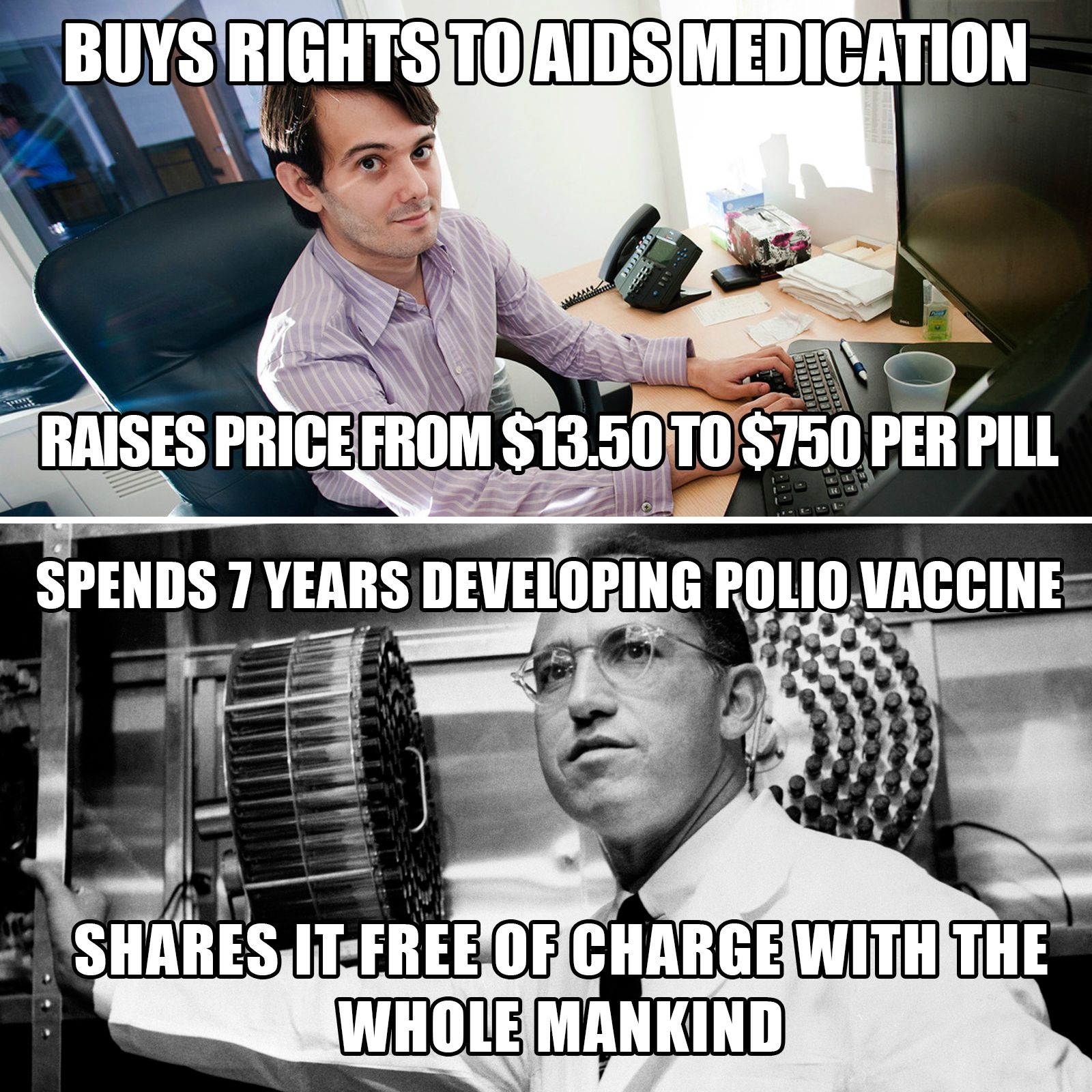Activists Strip down in Big Pharma Offices to Protest the Price of HIV Drugs

By:
On Friday, protesters stripped down in pharmaceutical company Gilead's London office to protest the steep prices of HIV and Hepatitis C drugs, Dazed reported. The naked activists painted letters on their backs that spelled out the word GREED to send a message about the accessibility of the life-saving medications, which currently aren't available through Britain's National Health Service due to cost.
Friday's protest addressed the costs of Truvada, which prevents HIV infection, and the Hepatitis C medication Solvadi, both of which are manufactured by Gilead. The London protest was organized by the city's AIDS Coalition to Unleash Power (ACT UP London), a non-partisan group working to end the AIDS crisis.
“I’m here to call out Gilead on their unfair pricing of medicines across the world because I take offence with a system that I see not only as being very unfair, but insensible. The ways that drugs are researched, developed, produced and distributed makes absolutely no sense to me,” 28-year-old London protestor and ACT UP spokesperson Tommy Clayton told Dazed reporter Sirin Kale.
Sister protests took place the same day in New York, DC, South Africa, and France, according to Dazed.
"We stand here naked, completely vulnerable, a state in which the current system leaves millions around the world," protester Jake Chambers told PinkNews. "We also stand with bareness and honesty, and we demand that drug companies be exposed in the same way."
Bilal Zenab Ahmed, a 25-year-old ACT UP London activist, wrote on the Guardian:
"ACT UP London believes that the HIV epidemic can be dealt with, if governments are willing to implement intelligent solutions. The HIV epidemic is complex, but it is workable, so long as the resources for it are made widely available. Healthcare needs to be made accessible to all, with the public good taking precedence over monetary concerns. In order to address the link between stigma and healthcare provision, the underclass rhetoric must end."
The cost of treatment kills.
NHS England announced that it was stalling efforts to make Truvada available in March, despite rising HIV infection rates in parts of the UK, and research that substantially proved the drug's effectiveness, PinkNews reported. The Buzzfeed News app boiled down the controversy:
"Yet at £446 per month, Truvada’s price makes it too expensive for it to be viably considered under the National Health Service," Ahmed wrote. A twelve-week course of Solvadi currently costs £35,000, and is rarely available through the NHS. These prices translate to $631.29 and $49,540.92, respectively.
"It’s not just NHS cuts, but the cost of these drugs. Pharmaceutical greed is blocking my access to PrEP," 24-year-old campaigner Alex Craddock told PinkNews.
My health and that of many of my friends shouldn’t be at risk simply because these companies choose to put profit before people,” he added.
AIDS is political issue.
The protest was about more than corporate greed, according to ACT UP activists. They also sought to address how impoverished and marginalized groups are impacted by the AIDS crisis.
"We believe that it is critical to take political positions on AIDS that understand the legal and economic standing of people who are working class, sex workers, women, migrants, trans* and non-binary, use drugs, and so on," Ahmed explained on the Guardian. "If AIDS is an issue of public health, then public policy must engage with every group with the disease. In practice, this means crafting policy that can tackle the illness effectivity in its economic context."
Ahmed pointed out that during a 2015 U.K. election debate, the U.K. Independence Party's Nigel Farage suggested that migrants were responsible from bringing HIV to the U.K.
"Farage sought to cast migrants as a diseased population that needs to be policed. This framing can be applied to different sections of society, whether survivors of domestic violence, sex workers, non-heterosexuals, homeless people, the unemployed, and so on," Ahmed wrote. "These groups are linked together by prejudice and stigma. At a time when fears about economic pressure on publicly funded services are high, the existence of these groups — and their use of the NHS — is framed as a menace or a burden."
These issues personally impacted Amhed, a Pakistani-Canadian who came to Europe due when civil war broke out in Yemen. "People like me are seen as a burden on the system, and people seem to hate us for a variety of reasons.” he told Dazed.
Fighting Big Pharma in the U.S.
As ATTN: has previously reported, Turing Pharmaceuticals CEO Martin Shkreli has repeatedly come under fire for raising prices of drugs to treat AIDS and cancer patients.
Turing raised the price of Daraprim—a treatment for an infectious disease, as well as AIDS and cancer—5,000 percent, from $13.50 to $750 per pill.
Shkreli faced massive online backlash.
 Imgur/Sciencegeek100 - imgur.com
Imgur/Sciencegeek100 - imgur.com
Meanwhile, "the Infectious Diseases Society of America and the HIV Medicine Association sent a joint letter to Turing earlier this month calling the price increase for Daraprim 'unjustifiable for the medically vulnerable patient population' and 'unsustainable for the health care system,'" according to a September New York Times report. As of yet, Turing has yet to lower the cost of the drug.
ATTN: reached out to Gilead for comment on Friday's protest and has yet to hear back.
You can read more about ACT UP London on their website.
